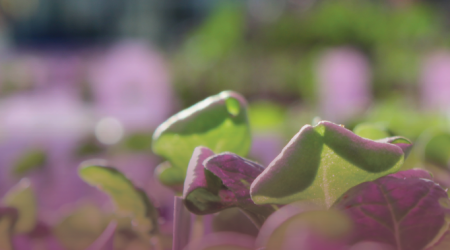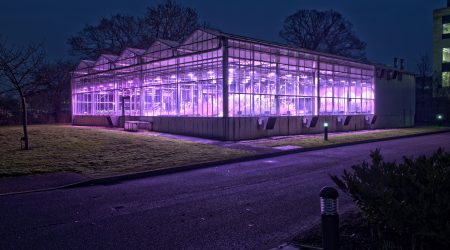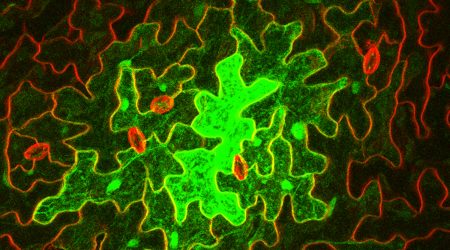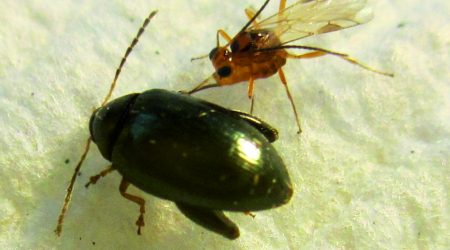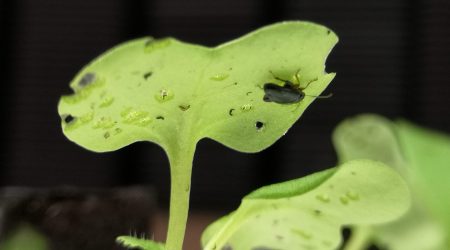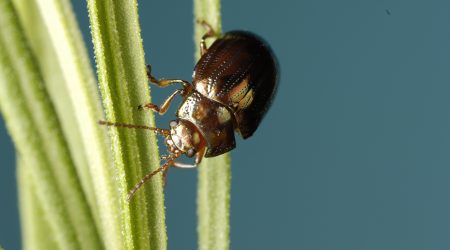A surprise development occurred as John Innes Centre researchers were studying the feeding habits of the cabbage stem flea beetle (CSFB)
The beetle is the most serious pest of oilseed rape (OSR) and is currently threatening its place as the most important break crop in UK crop rotation.
The CSFB has become a prominent pest, particularly in East Anglia and surrounding counties, following the EU moratorium on neonicotinoid seed treatment use in flowering crops.
The ban followed research linking these systemic pesticides to the decline of beneficial insects, most importantly bees.
The possible chemical-free solution to this growing problem arrived in the form of wasps that appeared mysteriously in colonies of CSFB which researchers had collected.
The intruders, spotted by John Innes Centre entomologist and first author of a recent study Anna Jordan, appeared even though the beetles were confined to potted OSR plants inside micro-perforated bags.
Anna’s investigations revealed that the colonies of around 3,000 beetles collected from three Norfolk sites had been infected by a species of parasitic wasp that lays eggs within the beetle’s body. The wasp larvae use the host beetle as a food source.
Genetic sequencing and enquiries by the Natural History Museum, UK, and the Swedish Museum of Natural History identified the wasp as an obscure species called Microctonus brassicae, first reported in 2008 with no further identifications until now.
The study is the first English-published description of this parasitoid of the adult CSFB. Experiments showed that within controlled conditions the presence of wasps in sufficient numbers led to the collapse of CSFB colonies.
The study raises the possibility of employing Microctonus brassicae and other species of parasitic wasps as a biocontrol to protect OSR and a range of commercially important crops prone to attack by CSFB.
– Dr Rachel Wells corresponding author on the study
“It offers the possibility of using parasitoid wasps as biocontrols for farmers and growers of oilseed rape and brassica vegetables against cabbage stem flea beetle as part of an integrated pest management approach.”
Beetles are rendered sterile but continue to feed and behave normally almost until the larva emerges, killing the host in the process. The short generation time of 43.5 days from egg to adult means it would be possible to rapidly rear multiple generations in controlled conditions.
Using beneficial insects for biocontrol has been investigated in the past, with five species of parasitoid wasps found to target CSFB. But these demonstrated limited effectiveness and were economically unviable while the now-banned pesticides were available.
The research suggests that the wasp may have the potential to deliver positive effects under field conditions. The wasp could also potentially be used to protect other Brassica crops which are grown in protected environments such as cloches and poly-tunnels.
Further research by Rothamsted Research has looked at wasp presence and parasitism levels across the UK. Agricultural practices such as promotion of field margins, beetle banks and conservation headland may provide habitats to support the beneficial parasitoids.
CSFB causes characteristic damage known as ‘shot-holing’ to leaves, often resulting in crop failure or poor crop establishment.
With the removal of seed treatments for oilseed rape, the numbers of CSFB and the damage they cause have increased making the crop impossible to grow in some areas. Figures for 2014 value damage at £23 million with an approximate loss of 3.5% of the national crop area of winter oilseed rape to CSFB. The estimated best-case crop production for 2020/21 is 1.26 million tons, a year-on-year decline of 489,000 tons, putting the future of the valuable UK rapeseed crop in doubt.
“Encouraging parasitoid wasps could provide some control for farmers and growers of oilseed rape and brassica vegetables. Such Integrated Pest Management approaches also benefit the environment and the general public from the promotion of parasitoid habitat and a move away from chemical applications,” says Dr Wells. “Oilseed rape is an early food source for many bees and other pollinators. Its loss from crop rotation could have a drastic impact on these insects.”
The research: ‘The potential of the solitary parasitoid Microctonus brassicae for the biological control of the adult cabbage stem flea beetle, Psylliodes chrysocephala‘ is in the journal Entomologia Experimentalis et Applicata.




